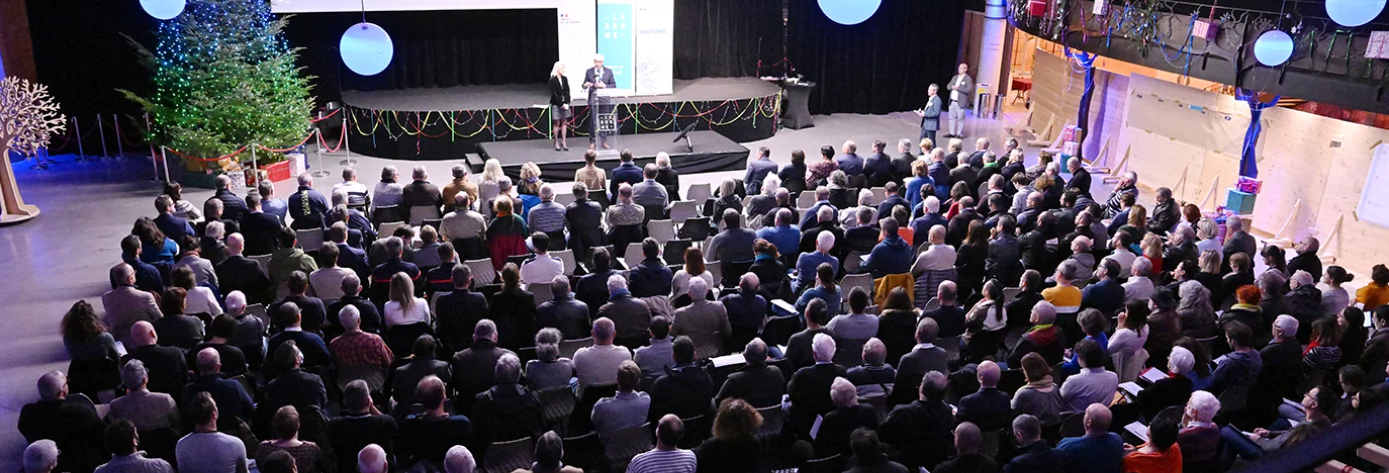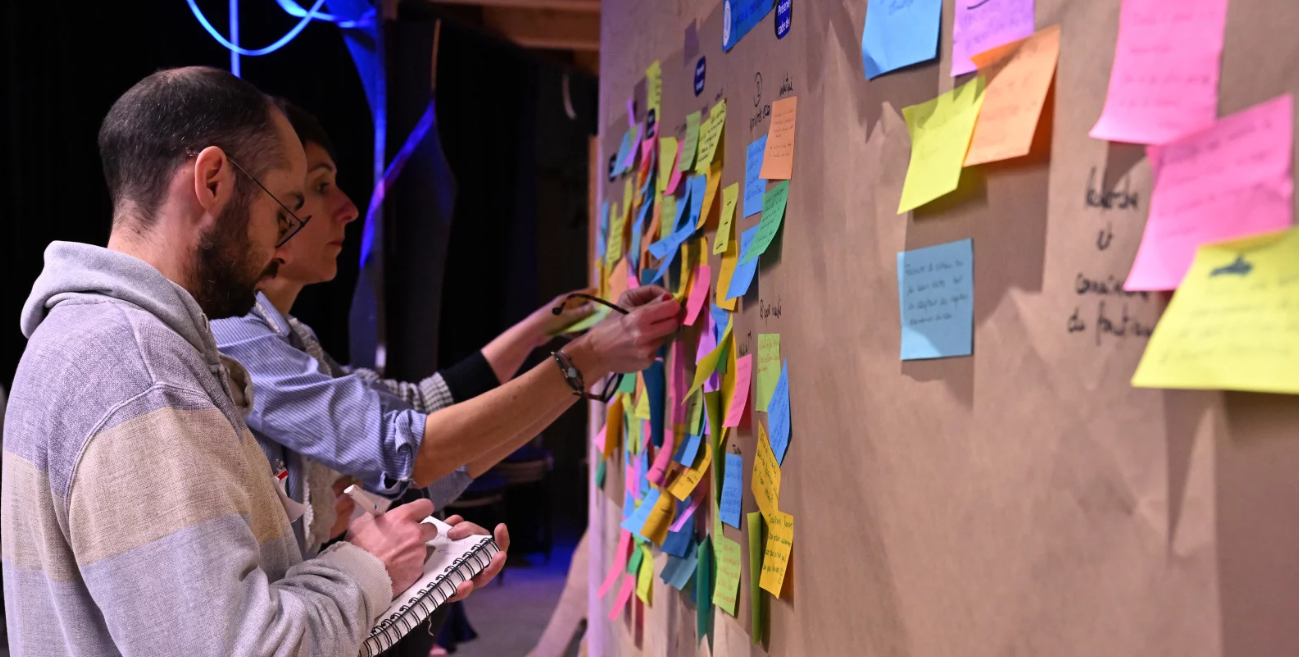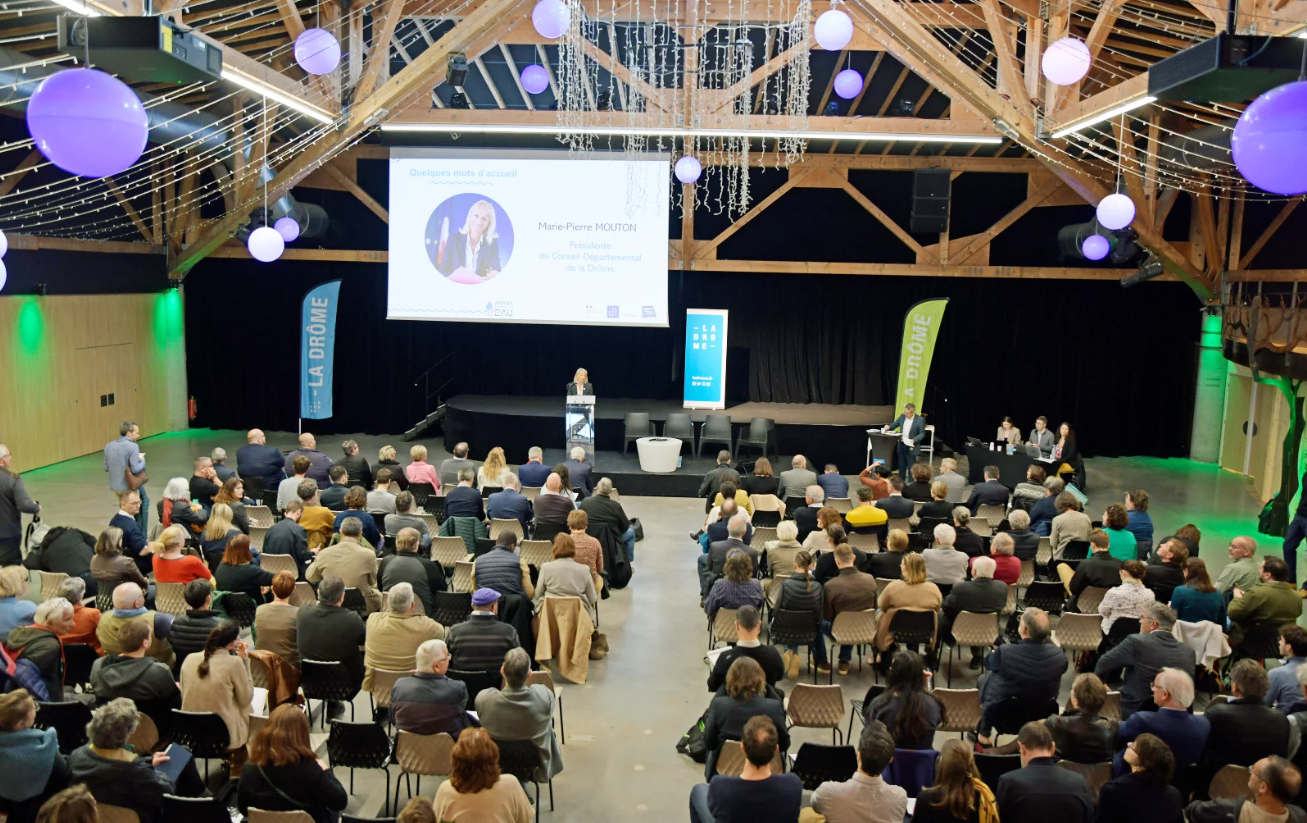France
Prefecture of Drôme, Department of Drôme, Rhône-Mediterranean Corsica Water Agency
01-12-2023
December 1, 2023 - April 12, 2024
12-04-2024
The Drômoises Water meetings were launched on December 1, 2023, in Upie, with the aim of creating a territorial dialogue on water management in the face of climate challenges. Organized by the Prefecture of Drôme, the Department, and the Rhône-Mediterranean Corsica Water Agency, these meetings bring together various stakeholders (elected officials, farmers, industrialists, associations, users) to discuss and define solutions in response to the water crisis. The first session marked the beginning of the process, followed by four thematic workshops, and a second session was held on April 12, 2024.
The main objective of the Drômoises Water meetings is to promote a constructive dialogue among all local stakeholders to establish sustainable and shared water resource management. In response to the impacts of climate change (notably recurring droughts and calls to reduce personal water consumption), the meetings aims to identify collective solutions to preserve water, adapt economic practices, and develop more resilient territorial planning. The approach also seeks to raise awareness among local actors of the need to act together to ensure the long-term sustainability of this vital resource. The ambition is to move beyond usage conflicts and foster a dynamic of cooperation and collective responsibility.

The meetings bring together a wide range of stakeholders, representing a broad spectrum of sectors and profiles. Around 250 participants took part in the first session in 2023, including elected officials, technicians, water users, as well as economic and environmental actors (farmers, industrialists, tourism site managers, etc.). The second session of the Drômoises Water meetings in Upie gathered more than 190 water stakeholders from the region. This diversity provides a variety of perspectives on water-related issues, whether technical, economic, or social. The diversity of participants, both in terms of professions and geographical areas (within the Drôme department itself), is a key asset in establishing a comprehensive and inclusive strategy.
Drôme, a department in the southeast of France, faces significant environmental challenges due to climate change, particularly increasingly frequent and severe droughts. With an estimated population of about 530,000 inhabitants in 2025, Drôme is a region particularly vulnerable to tensions over water resources, due to its geographical and climatic diversity, ranging from Mediterranean to continental zones. Water, essential for agriculture, industry, tourism, and daily life, is becoming an increasingly scarce resource, requiring collective solutions. The situation is urgent: natural environments and ecosystems are degraded, and water management has become a vital issue.
The methodology of the Drômoises Water meetings is based on an inclusive and participatory approach. From the first session in December 2023, various stakeholders—elected officials, technicians, farmers, industrialists, associations, and users—were brought together to freely discuss water management issues, addressing specific themes through interactive workshops. The approach is distinguished by its aim to create a space for dialogue where each participant can express their concerns and propose solutions tailored to the local context. The choice of participation was widely open, with strong involvement from citizens, economic actors, and political leaders, fairly distributed across the different geographical areas of the department. This process continued with several thematic workshops, allowing for deeper reflection on key topics such as water conservation, the adaptation of economic practices, and territorial planning based on water-related challenges.

Although the process is still ongoing, several signs show that the discussions are already bearing fruit. Participants in the meetings have identified concrete actions to be implemented, particularly in water resource management and awareness of water conservation. The creation of "network dynamics" and the emergence of "consensus on strategic priorities" are tangible results of this approach. Local actors, supported by innovative initiatives, are beginning to adapt their practices. Upcoming follow-up and feedback sessions should allow for further evaluation of the impact of the actions undertaken. Thus, while the situation remains critical, the Water meetings has already initiated a shift in mindset and collective practice, strengthening the region's ability to respond to the challenges of water management.
Nicolas Alban, Director of the Lyon territorial delegation of the Rhône-Mediterranean Corsica Water Agency, highlights that the Drôme department benefits from a solid history in water management, with initiatives such as the PGRE (Water Resource Management Plan) and the SAGE (Water Management and Planning Scheme). However, he stresses the need to intensify efforts in information and awareness-raising. According to him, the issue of water has often been addressed by experts, to the detriment of citizen involvement. He believes that it is now essential to make the inhabitants active participants in the process, as was done in Marsanne (with over 1,250 inhabitants) through the Municipal Council of Children. This participatory approach would lead to a better understanding of water-related issues and promote a more collective and responsible management of this precious resource.

More information here: